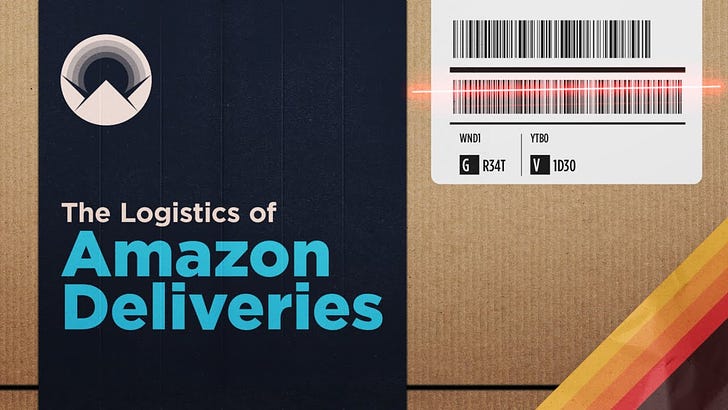One Step Up #38
This week, we look at a conversation b/w Zuck-Ek-Lutke ($FB X $SPOT X $SHOPIFY), disruption, Paul Tudor Jones, Amazon's insane logistics operations + more
PressClub with Mark Zuckerberg, Daniel Ek, and Tobi Lütke
So many good nuggets if you have any interest in learning mroe about the creator economy, Apple’s policies, the audio first opportunity and how it all comes together.
Main takeaways here, but just read the transcript for a better.
The bit I found very interesting? Zuck’s point about Apple’s private APIs.
So over the long-term, the iOS 14 business changes are actually not the biggest concern I have with Apple. The thing that I worry about the most is the private APIs…When you see this, both on the software side and the hardware side, right?
So for a product like Messenger on Android, people can make that their default SMS client, in addition to sending messages, And on, on iPhone, you just can't have a different SMS client. That's, not a thing that Apple allows. They give their own services access to better and different APIs for doing video chat.
On the access to private APIs and how the differential between Android and iOS is really massive.
In terms of kind of just integrating devices with iOS, it is really difficult. And I think that they do that on purpose and then they have things like AirPods where, you know, basically the main feature that allows them to sell it for, some kind of huge amount of profit is that it pairs well with the phone because they have given themselves an API. For any other headphone provider, basically it's much harder for the headphones to pair and, the AirPods pair in half a second and anything else takes eight seconds and it's just not as good of an experience.
What “disruptive” actually means
A sustaining innovation is one that helps a company serve its existing customers better. It improves their products along the axes their customers care about. In the book, he gives the example of excavators. When steam shovels transitioned to gasoline engines, that was a sustaining innovation: it did the same thing, more efficiently. Crucially, existing customers were interested in the improved design.
A disruptive innovation is not better along the axes that existing customers are evaluating. It’s often worse. But it’s better along a different axis. Often, a disruptive innovation is less powerful but much cheaper. Continuing the excavator example, the backhoe was a disruptive innovation. It was less powerful than its predecessors in the market, with more limited reach. But it was smaller, faster, and cheaper—and so it found a new market among small residential contractors.
Disruptive innovations succeed not by competing in an existing market, but by finding a new market, often opening up a market to a new segment. The new segment has different needs and is best served by a different technology.
Stalking Bubbles: Paul Tudor Jones, 1987-1990
One of the most incredible write ups on Paul Tudor Jones. Many takeaways, whether you’re an investor, trader or just someone who loves reading about market history and the psyche of a great trader.
My investment strategy springs from developing a fundamental view of a particular market. Under- or overvaluation is only part of the battle. The key thing is to be able to time one’s entry into a position at the precise moment when the market is about to move in your favor.
If you put a gun to my head and ask me to choose between fundamental and technical analysis, I would take the technical every time.
How Amazon's Super-Complex Shipping System Works
“Take a simple idea and take it seriously.” - Charlie Munger
Highlighting the work on two extraordinary individuals, Rich Barton (who founded Expedia, Zillow, and Glassdoor - his big idea: Power to the People) and Richard Mosse (his big idea: using cameras to highlight aspects of the world that are beyond the grasp of the naked eye i.e. use photographs to illuminate the invisible), David writes about the power of one big idea.
To outperform, you need serious competitive advantages. But contrary to what you have been told, most of them don't require talent.
10 competitive advantages that you can start developing today: (read the article for a better understanding of each)
Intellectual Curiosity
Comfort with Discomfort
Simplify Where Others Complicate
High Tolerance for Failure
Low Time Preference
Antifragility
Presence
Relentless Consistency
Noise Cancellation
Be Yourself
Till next time.




